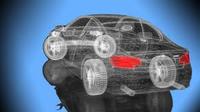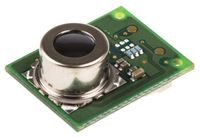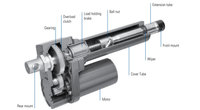
Mechatronics Engineering
Authored by HAIZA HAROON
Education
University
Used 3K+ times

AI Actions
Add similar questions
Adjust reading levels
Convert to real-world scenario
Translate activity
More...
Content View
Student View
12 questions
Show all answers
1.
MULTIPLE SELECT QUESTION
2 mins • 1 pt

Mechatronics make possible the generation of systems that are
simpler
expensive
versatile
reliable
2.
FILL IN THE BLANK QUESTION
2 mins • 1 pt

List ONE (1) Disciplinary Foundations of Mechatronics
3.
MULTIPLE SELECT QUESTION
2 mins • 1 pt
Hybrid technology refers to the technology that uses one distinct power sources to move a machine or uses one technologies to solve the problem.
True
False
4.
FILL IN THE BLANK QUESTION
2 mins • 1 pt
Hybrid Mechatronics refers to merger of electrical, mechanical and ________________ system to produce a more efficient system.
5.
OPEN ENDED QUESTION
2 mins • Ungraded

List ONE (1) application of mechatronics engineering system in automotive:
Evaluate responses using AI:
OFF
6.
FILL IN THE BLANK QUESTION
2 mins • 1 pt

Development of very-large scale integration (VLSI) led to the introduction of
7.
MULTIPLE SELECT QUESTION
2 mins • 1 pt

Modules of mechatronics system consists of
sensing
calibration
action
control
Access all questions and much more by creating a free account
Create resources
Host any resource
Get auto-graded reports

Continue with Google

Continue with Email

Continue with Classlink

Continue with Clever
or continue with

Microsoft
%20(1).png)
Apple
Others
Already have an account?
Similar Resources on Wayground

10 questions
EXERCISE 6 TOEFL WRITTEN EXPRESSION
Quiz
•
University

15 questions
Current Affairs
Quiz
•
12th Grade - Professi...

10 questions
Units & Dimensions
Quiz
•
University

12 questions
JAVA FUNDAMENTALS
Quiz
•
University

10 questions
Quiz on Approaches to Language Teaching
Quiz
•
University

15 questions
POP QUIZ OSHA
Quiz
•
University

11 questions
Takaful Knowledge
Quiz
•
University

10 questions
S1.24 BUSM4567 Week 10_Online Session
Quiz
•
University
Popular Resources on Wayground

15 questions
Fractions on a Number Line
Quiz
•
3rd Grade

20 questions
Equivalent Fractions
Quiz
•
3rd Grade

25 questions
Multiplication Facts
Quiz
•
5th Grade

54 questions
Analyzing Line Graphs & Tables
Quiz
•
4th Grade

22 questions
fractions
Quiz
•
3rd Grade

20 questions
Main Idea and Details
Quiz
•
5th Grade

20 questions
Context Clues
Quiz
•
6th Grade

15 questions
Equivalent Fractions
Quiz
•
4th Grade


